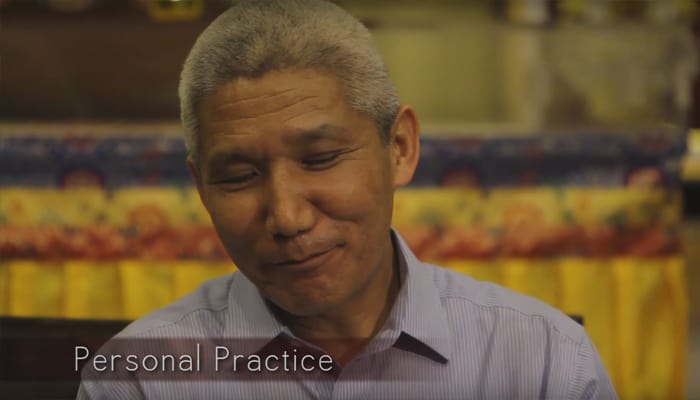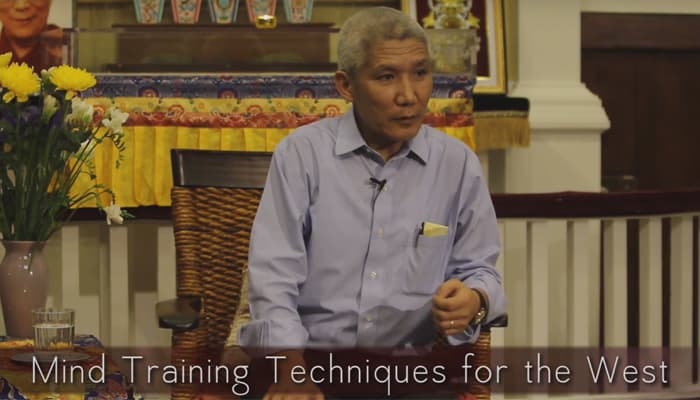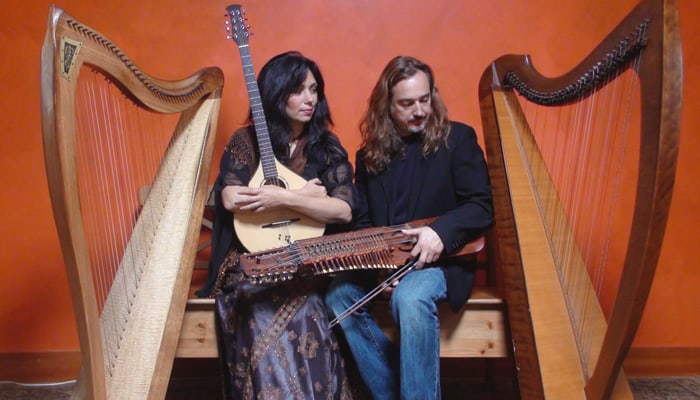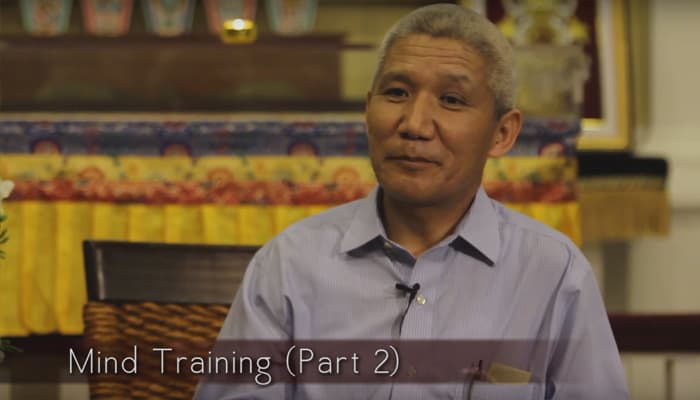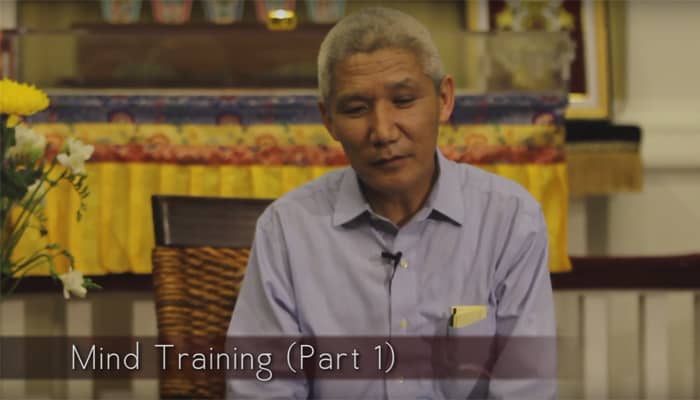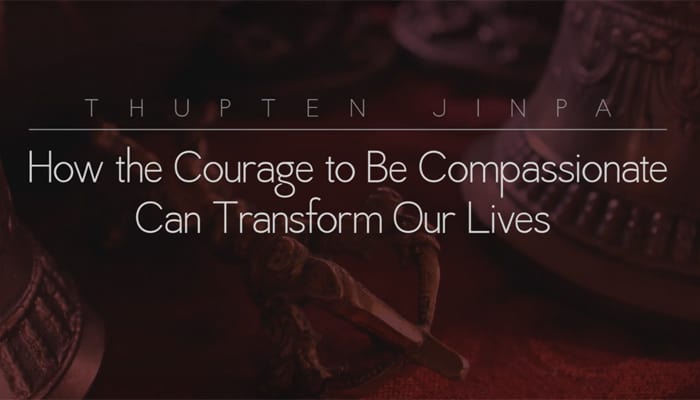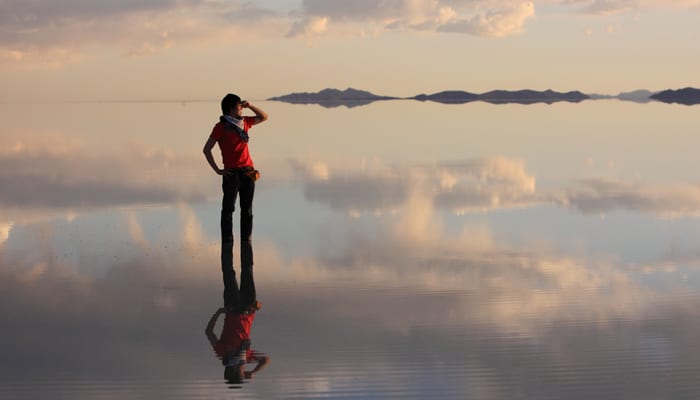Library
Video: Personal Practice with Thupten Jinpa, Ph.D.
Thupten Jinpa offers suggestions for developing a personal meditative practice. Excerpted from a talk given at the Sacred Stream Center in Berkeley, CA. Thupten Jinpa is the author of A Fearless Heart: How the Courage to Be Compassionate Can Transform Our Lives, and English translator for His Holiness the Dalai Lama.
Blog: Journey On It: Inner Guidance
By Isa Gucciardi, Ph.D.
In traditional shamanic practice, the journey was taken by the shaman to understand and connect with the power of the Earth. The shaman became empowered through the process of this quest and used this power to aid the community through ceremony, healing, and divination. Shamans use a repetitive sound to alter consciousness and then focus their attention inward. The most common sounds used for the shamanic journey are drums and rattles.
Video: Mind Training Techniques for the West with Thupten Jinpa, Ph.D.
Thupten Jinpa answers the question of how Mind Training, including meditation and compassion practice can be helpful to people in contemporary societies. Excerpted from a talk given at the Sacred Stream Center in Berkeley, CA. Thupten Jinpa is the author of A Fearless Heart: How the Courage to Be Compassionate Can Transform Our Lives, and English translator for His Holiness the Dalai Lama.
Special Announcement: Sacred Stream’s Summer Parenting Series
Sacred Stream is committed to helping build more conscious families. Our Empowered Living programs are all designed to help you understand yourself and others better. This summer, our Summer Parenting series can help you begin at the beginning – to understand birth from a new point of view with Tracking Spirit in the Birth Environment. And help you all the way to the end – by offering you resources to help you through all the years of parenting with the Conscious Parenting workshop.
Special Announcement: Lisa Lynne and Aryeh Frankfurter in Concert
Windham Hill and Sony recording artist Lisa Lynne is joined by multi-instrumentalist Aryeh Frankfurter for an evening of traditional instrumental music from Sweden and Ireland, as well as heartwarming original compositions blended with stories of humor and adventure. Together they play two Celtic harps, the rare Swedish nyckelharpa, Ukrainian bandura, cittern, and more. Lisa Lynne’s recordings have repeatedly placed in the Top 10 and Top 20 on the Billboard New Age music charts. The Sacred Stream’s own award-winning songwriter and recording artist, Laura Chandler, opens the show.
Video: Mind Training with Thupten Jinpa, Ph.D. (Part 2)
Thupten Jinpa continues his discussion of Mind Training and how this kind of practice can help people gain greater peace and happiness in daily life. Excerpted from a talk given at the Sacred Stream Center in Berkeley, CA. Thupten Jinpa is the author of A Fearless Heart: How the Courage to Be Compassionate Can Transform Our Lives, and English translator for His Holiness the Dalai Lama.
Blog: Journey On It: Reconnecting with the Earth’s Wisdom
By Isa Gucciardi, Ph.D.
In societies whose stories and wisdom emerge from the Earth, the Earth was often understood to have two important aspects to it: the unseen and seen. This meant that every tree had its physical aspect in the form of the tree that we can see with our five senses. But it also had another, more hidden one. This aspect is often referred to as the ‘spirit’ of the tree.
Video: Mind Training with Thupten Jinpa, Ph.D. (Part 1)
Thupten Jinpa addresses the importance of Mind Training and how this kind of practice can help people gain greater peace and happiness in daily life. Excerpted from a talk given at the Sacred Stream Center in Berkeley, CA. Thupten Jinpa is the author of A Fearless Heart: How the Courage to Be Compassionate Can Transform Our Lives, and English translator for His Holiness the Dalai Lama.
Video: How the Courage to Be Compassionate Can Transform Our Lives with Thupten Jinpa, Ph.D.
In this talk based on his book, “A Fearless Heart: How the Courage to Be Compassionate Can Transform Our Lives,” Thupten Jinpa offers insight into helpful practices such as Mind Training, and the Compassion Cultivation Training he developed. He also discusses his life as a monk, as a husband and father, and decades-long work with His Holiness the Dalai Lama. Recorded at the Sacred Stream Center in Berkeley, CA on May 20, 2015.
Blog: Journey On It: Finding Our Way Home
By Isa Gucciardi, Ph.D.
The Journey is a process of going inward that helps us discover who we are and what our relationship is to the world around us. Seekers trying to understand the mystery of their experience can be found in every culture that has existed on the planet. Different societies have different names for these seekers – medicine men, medicine women, the ones who cure, the ones who know. Cultures with these kinds of references for their seekers tend to be cultures that exist closer to the earth.
In cultures whose traditions are closely tied to the natural rhythms and processes of the Earth, the Earth itself is the place where all inquiry begins and ends. In order to know when to plant successful crops, its rhythms must be measured. In order to measure its rhythms, seekers have looked skyward to measure the Earth’s rhythms against the patterns of the sky.
Article: Relationship as a Vehicle for Consciousness
By Isa Gucciardi, Ph.D.
Relationship forms the core of our experience as humans. We define ourselves and are defined by the nature of our relating. The Buddhist concept of interdependence affirms that nothing exists independently. Everything exists interdependently. In relationship, we do not and cannot exist independently of one another.
It is through relationship that we come to know ourselves. It is through relating that we hold up a mirror to others for them to come to know themselves. Others do the same for us, providing us with information about ourselves that we could not see without the lens of relating. In this way, relationship provides us with a path of revelation. As we learn more about ourselves, our experience takes on richer meaning.
Blog: Finding Power in Powerlessness
By Isa Gucciardi, Ph.D.
The roots of anger, and indeed, the roots of many potentially destructive emotions, lie in powerlessness. Most people would not choose destructive emotions as a way to gain control over circumstances if they could learn to tolerate not having control over the situations around them.
It is important to be gentle with yourself and have self-compassion as you learn to be present with your anger. It is easier to be compassionate with yourself if you can trust your ability to take responsibility for any way you may have harmed yourself or another with anger. In this way, you won’t look for the easy “out,” but instead learn everything you have to learn from the way you have related to your anger. In this way, you can understand the roots of your anger more fully, make amends where needed, and honor the information contained in your anger.
Blog: Listening to Anger
By Isa Gucciardi, Ph.D.
There is a Mahayana Buddhist idea that everything in our experience is part of the path to enlightenment. This is very important to remember when we find ourselves wanting to avoid relating to others because it seems too overwhelming. We must remember that everything that comes up in our experience is workable.
Blog: Having Compassion for Yourself and Others
By Isa Gucciardi, Ph.D.
How attentively do you listen to yourself? Are you engaging in negative self-talk? Are you seeing your own self-talk reflected in how you talk to others? Are others having a reaction? Is it hard to ignore or deny that reaction?
Here’s a hint: There is probably a part of yourself that is hearing that negative self-talk and having a reaction similar to those around you who you might be treating in the same way. This is one of many benefits of being in relationship. We can learn about ourselves and see ourselves through the lens of relationship.
Blog: Being Present in Relationship
By Isa Gucciardi, Ph.D.
It is a common tendency to think that if we just ignore a problem, it will either go away on its own or we won’t feel its effect. Ignoring our problems leads to confusion about what is real and what is true. Unfortunately, one of the most common responses to this state of confusion is to go into denial about the fact that the effect of not being present is causing a problem.

